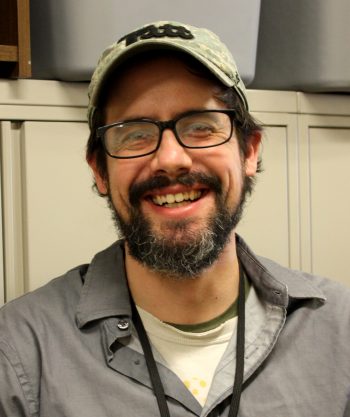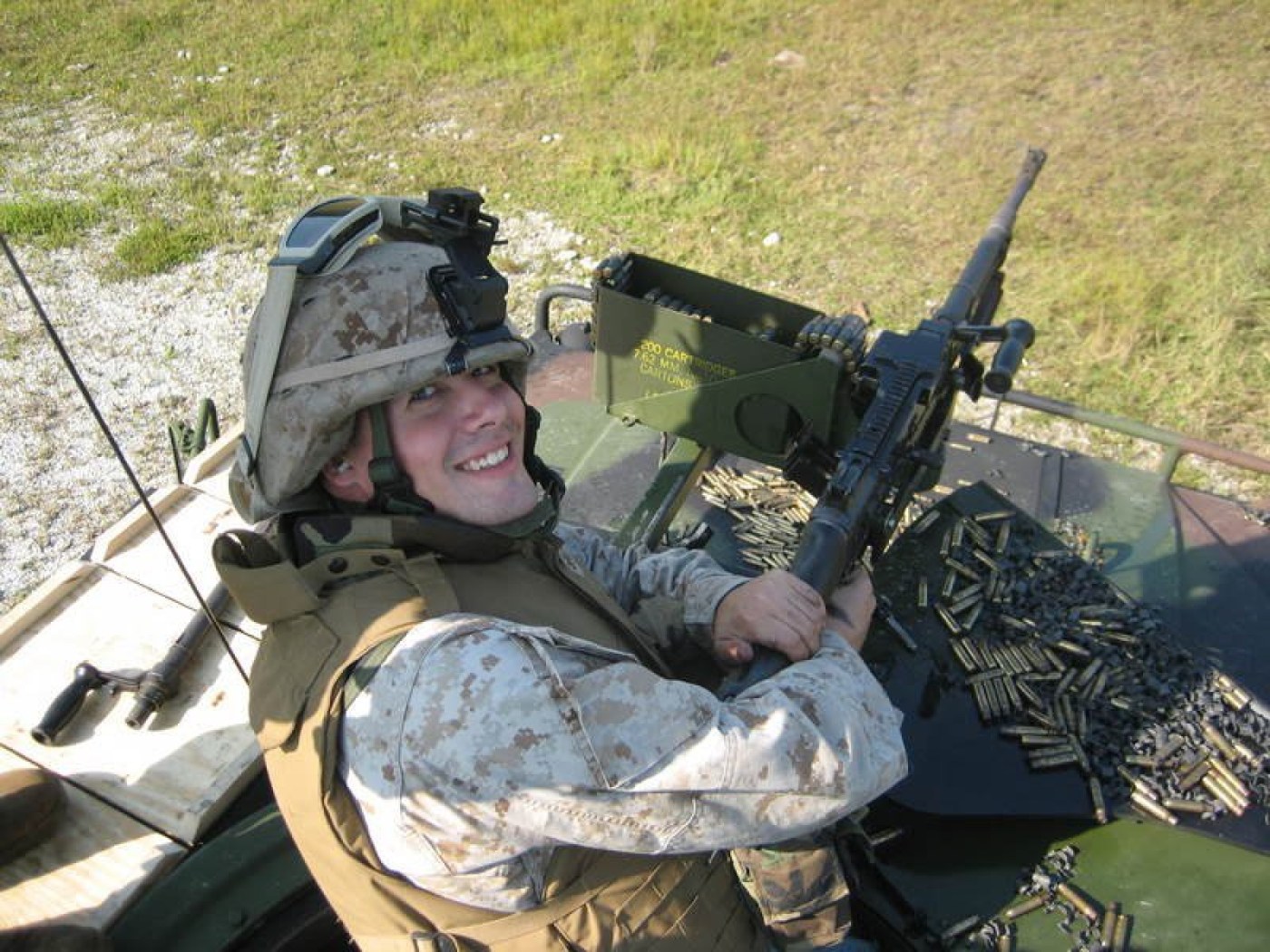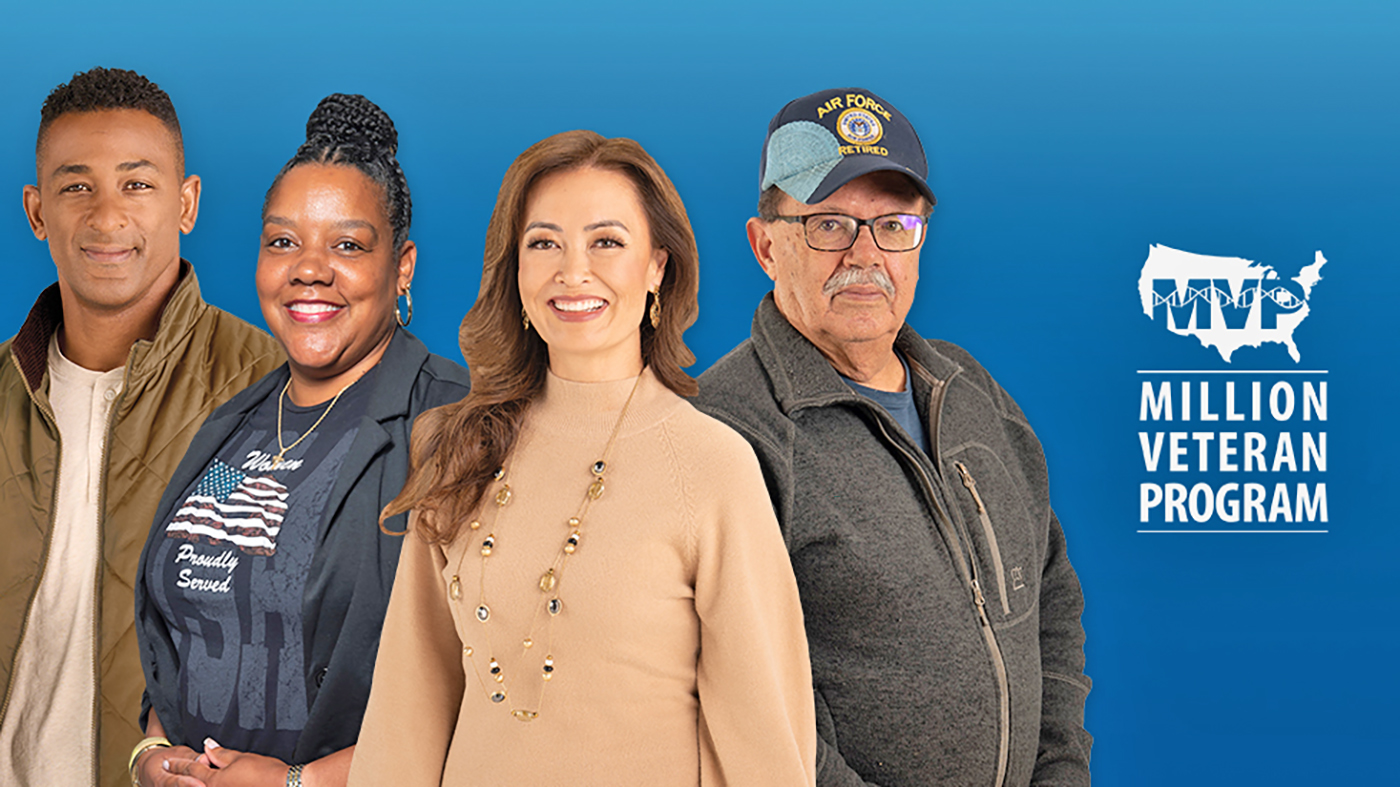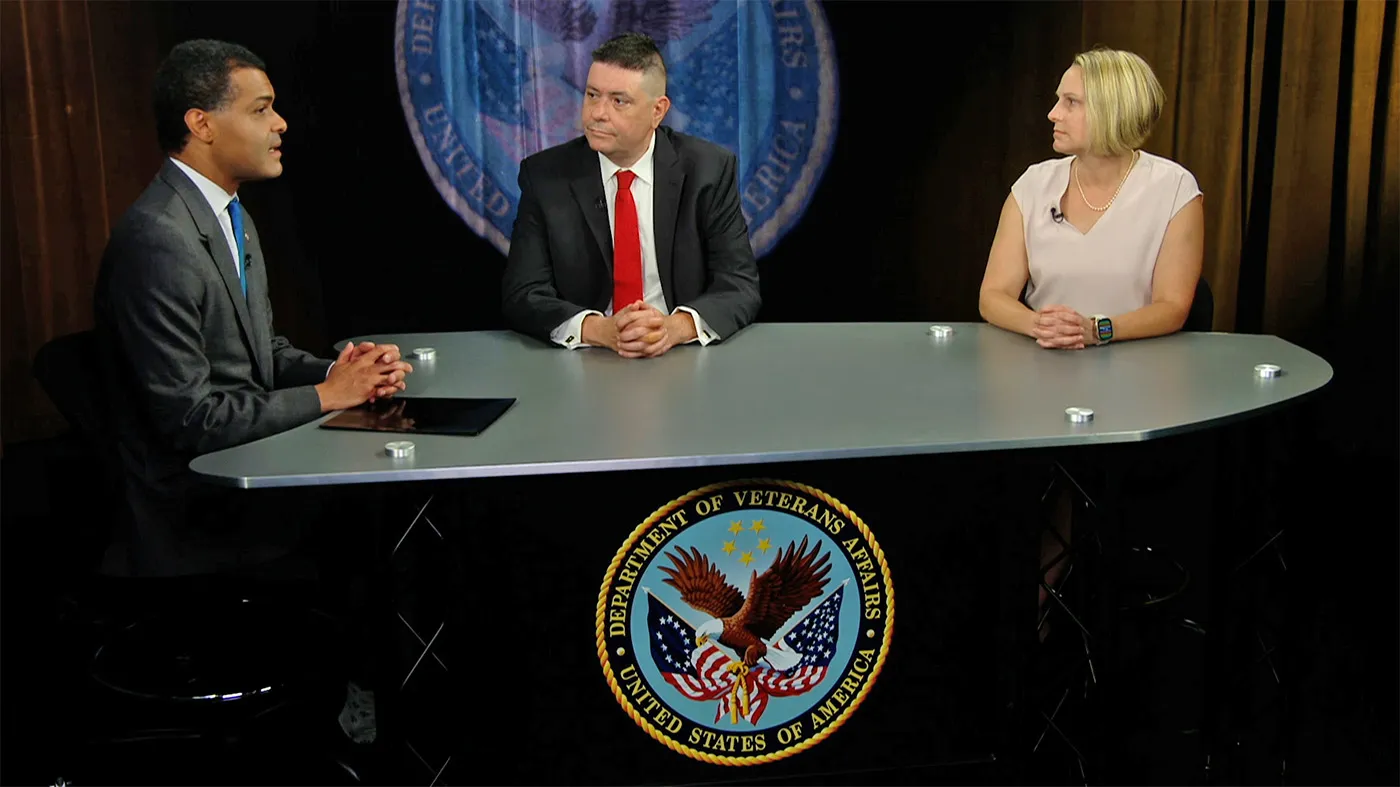The following feature is part of the series, VA Researchers Who Served. These profiles bring to life the critical work that VA researchers are doing for the Veteran community and highlight and recognize their military service, while including a touch of human interest and an inspirational tone. The series honors those who once served and who continue to serve through their VA research endeavors.
Nicholas Gatto, a Navy Veteran, is a research assistant at the Human Engineering Research Laboratories (HERL), a joint project between the VA Pittsburgh Healthcare System and the University of Pittsburgh. He assists in data collection, study coordination, and testing participants in the research of pneumatically powered wheelchairs, which operate through air or gas pressure. He also travels to testing sites and provides pneumatic technology information to the public for use in commercial environments. He served in the Navy from 2004 to 2010, and for four of those years was part of the United States Fleet Marine Forces, a special purpose Naval unit that performs amphibious or expeditionary warfare and maritime duties.

Nicholas Gatto, a Navy Veteran, is a research assistant at the Human Engineering Research Laboratories, a joint project between VA and the University of Pittsburgh.
What motivated you to join the military?
Before my time in the military, I had very little direction in my life and not many prospects about my future. I had recently dropped out of college, after realizing I did not want to be an English teacher. I had no other ideas about a career. I bummed around from Ocean City, Maryland, to San Diego, Calif., for a few years having a good time. But I was ultimately left feeling like I lacked any focus. I knew I loved to travel and that I wanted to eventually go back to college. I met several people who had joined the Navy. It seemed to suit me perfectly at the time to join the military. I will always be proud that I did.
Did you have mentors who inspired you in life, the military, or your research career?
I was always inspired by the officers at the medical clinic during my time with the Marines. Many of them were physician assistants who had come from the Naval Academy or had enlisted after graduating from another college. They were always incredibly reliable and knowledgeable. They were always right there with us no matter the situation and worked harder than anyone else I have seen in the military. Most importantly, it was easy to tell that they just cared deeply for the people they were tasked to take care of, no matter who those people were. That feeling was contagious. Working alongside them always made me feel important, meaningful, and focused. I have that same feeling and inspiration today working alongside [HERL Director] Dr. Rory Cooper and Dr. Brad Dicianno, the medical director at HERL.
What kinds of research are you involved in? How does it potentially impact Veterans?
Every piece of research done at HERL has the potential to improve the lives of Veterans and other people with disabilities. But the top priority is always on those who have served. I’ve been involved with about 10 studies since I began working at HERL, including the StrongArm study on a robotic arm to aid people in wheelchairs. Lately, I’ve been working on a study that assesses the effectiveness of mobility devices used by female Veterans with disabilities and on a study that focuses on replacing electronic mobility devices with pneumatic powered technology. Soon, Veterans in the Pittsburgh area will test these new devices in the hope of proving their benefits. I’ve also been involved in a study on stroke rehabilitation.
Did your military experience inspire you to pursue a career as a VA researcher? Is your military experience connected in some way to your VA research?
As a Navy corpsman with the Marines, it was easy to see how so many Veterans could come out of the service with an array of disabilities, from training accidents to combat injuries. Throughout my career, I have been tasked in various ways with managing the care of those people. I have developed a deep appreciation for the sacrifices and the sweat that I saw in those around me, and I’ve always felt privileged to play a supportive role. I have always felt a great sense of pride in helping my fellow service members manage their medical care and find solutions. I’m incredibly fortunate to have found a career that allows me to stay on that path.
More Information
Click here to read the full story.
Click here to learn more about VA research.
Topics in this story
More Stories
Diverse representation of women in health care research allows MVP to make discoveries for women’s health
Join the Million Veteran Program online. You will have the option to receive an at-home blood sample collection kit in the mail.
VHA's new podcast series, New Horizons in Health, features a candid discussion of psychedelic assisted therapies for Veterans experiencing mental health conditions.






